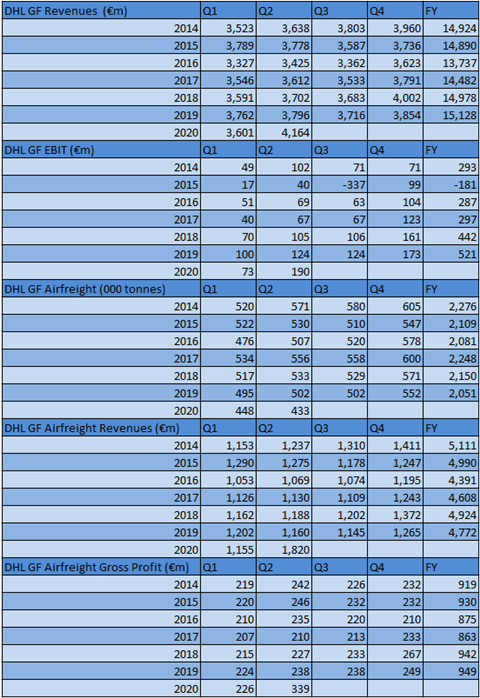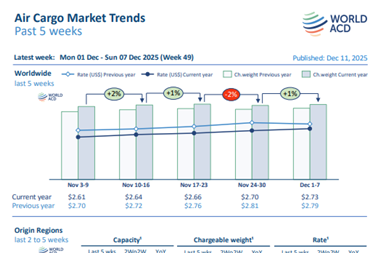Deutsche Post (DP) DHL is the latest company to report soaring airfreight revenues as a result of the capacity crunch experienced in the second quarter of the year.
The German express and parcels giant saw second-quarter revenues from its airfreight forwarding business increase by 57% year on year to €1.8bn, gross profits were up 42.4% to €339m, but air volumes slipped by 13.7% to 433,000 tonnes.
The forwarder said that the decrease in volumes was due mainly to the worldwide decline in market volumes as a result of the pandemic. Trade lanes to China and transatlantic goods were especially impacted.
The increase in revenues and profits was down to "extreme shortages of transport capacity" and the resulting hike in airfreight rates.
"DHL Global Forwarding was able to secure freighter capacity early on for customers in a very tight market, leading to strong Gross profit per tonne and therefore significant airfreight gross profit growth," the company said.
The overall forwarding business saw second-quarter revenues increase 10.4% year on year to €4.2bn and gross profits were up 53.2% to €190m.
The revenue and profit growth despite a volume decline is reflected by many major forwarders. Kuehne+Nagel saw airfreight revenues increase by 15% year on year despite a 22% drop in volumes.
Expeditors saw its air volumes decline by 10% in the second quarter but revenues were up 93.4%. DSV Panapina also reported this trend, although its year-on-year comparisons are skewed by the takeover of Panalpina.
The DP DHL Group issued new earning guidance as a result of its good performance - revenues for the second quarter increased by 3.1% on last year to €16bn, operating profits were up 18.6% to €912m and net profit improved 14.6% to €525m.
The company said that broad geographic footprint and "comprehensive portfolio of logistics solutions, ranging from global express, air and ocean freight transport to warehousing and e-commerce solutions and post and parcel services in Germany", meant it was more robustly positioned than other companies to overcome crises.
It also emphasised its ongoing digital transformation of business processes and customer solutions, for example through the use of data analytics and automation.
"This strong performance was supported by the steps that the Group took at an early stage to adjust its capacities in an agile way to the altered demand situation and to ensure the availability of its own flight capacities.
"At the beginning of the second quarter, business performance in express, air and ocean freight and warehousing were impacted in particular by the pandemic protection measures imposed in Europe and North America.
"In the further course of the second quarter, for example, volumes with time-definite international express shipments began to recover, which allowed the Express division to reach the previous year's level in the first half of the year."
The company now expects its operating profit to reach between €3.5bn and €3.8bn in 2020.
















